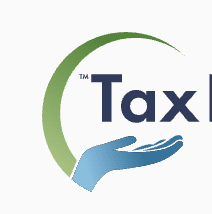
While our best tax relief services can help reduce your tax burden, fraudsters constantly develop new schemes to steal your money and personal information.
From fake tax preparation services to sophisticated refund fraud, these scams continue to evolve and target unsuspecting taxpayers. Here are 11 tax scams to watch out for in 2025, plus essential steps to protect yourself from falling victim.
Expert Insights on Tax Scams
- Scammers are becoming more sophisticated and target those who are vulnerable.
- Never give out personal information to someone reaching out to you; always call back or email an official email instead.
- The government will never call you demanding money or charge you for help with its programs.

The 11 Tax Scams of 2025 to Watch Out For
1. Phishing Emails and Texts
Phishing scams involve deceptive emails or text messages that trick you into divulging personal information or money. Scammers often impersonate legitimate organizations, such as the IRS, banks, or retailers.
These messages typically create a sense of urgency, asking you to reset your password, pay overdue taxes, or verify an account. They may contain links to fake websites that look legitimate but are designed to steal your login credentials or other sensitive data.
What to do to avoid phishing emails: Always verify the sender's email address and be suspicious of messages from unknown sources. Never click on links asking for personal information; instead, go directly to the official website. Remember, the IRS will never request your banking details via email. Also, watch out for misspellings.
2. Phone Scams (Impersonating IRS Agents)
Phone scams are more threatening than plain old phishing and usually involve getting urgent, aggressive phone calls. This is especially true regarding those threatening legal action against you if you don’t make an immediate payment.
What to do to avoid phone scams: Never give out personal information over the phone, especially to unsolicited callers. If you receive a suspicious call, hang up and contact the official organization using a verified phone number. Remember, the IRS will not demand immediate payment over the phone and will never ask for credit card information.
3. Fake Tax Preparation Services
Choosing a tax preparer requires caution since they'll have access to your Social Security number and other sensitive data. Some dishonest preparers exploit this trust by filing fraudulent returns or stealing refunds. Be wary of "ghost preparers" who won't sign tax returns, as this is a direct violation of IRS requirements.
What to do to avoid fake tax preparation services: Protect yourself by verifying that any preparer is registered with the IRS and has legitimate credentials. Watch for red flags like promises of unusually large refunds or requests to sign blank tax forms.
4. Social Media Scams
Tax scammers are increasingly targeting social media platforms with sophisticated impersonation schemes. They create convincing profiles that mimic trusted contacts, celebrities, or even IRS officials.
What to do to avoid social media scams: Even when profiles seem legitimate and have accurate details—never share personal or financial information through social media messages or posts.
5. Stimulus Payment Scams
Fraudsters frequently target people seeking government assistance, particularly during tax season and stimulus payment periods. They charge fake "processing fees" to speed up stimulus payments or offer paid help with free government programs.
What to remember about stimulus payment scams: The IRS never charges fees for these services; no one can expedite government payments. If someone asks for payment to help you access IRS programs or stimulus funds, it's a scam.
6. Refund Fraud
Refund fraud happens when scammers file fake tax returns using stolen identities to collect other people's refunds. Once they have your Social Security number and personal information, they can submit returns early in the tax season—often before legitimate taxpayers file.
What to do to avoid refund fraud: Protect yourself with an Identity Protection PIN (IP PIN) from the IRS. This prevents anyone else from filing a return in your name. Also, check your credit reports and IRS tax transcripts regularly to catch suspicious activity early.
7. Cryptocurrency Tax Fraud
Beware of promises about tax-free cryptocurrency investments or requests to pay taxes using crypto. The IRS requires reporting of all cryptocurrency transactions and only accepts approved payment methods—not cryptocurrency or gift cards. Anyone claiming otherwise or demanding crypto payments for taxes is running a scam.
8. Payroll and W-2 Scams
HR professionals face unique tax scams targeting employee W-2s and payroll data. Scammers impersonate executives, employees, or vendors to trick HR staff into sharing sensitive employee information.
What to do to avoid payroll and W-2 Scams: Protect your workplace by verifying all requests for employee data, even if they appear to come from management. Double-check unexpected or unusual requests through established company channels, and never send sensitive information without proper authentication.
9. “Offer in Compromise” Mills
Beware of "Offer in Compromise" (OIC) mills that target struggling taxpayers with large tax debts. These companies charge hefty fees while promising to settle your tax debt for "pennies on the dollar"—claims that are usually too good to be true. Most provide minimal help and pocket your money while your tax debt remains.
What to do to avoid "Offer in Compromise" mills: If you qualify for an Offer in Compromise, work directly with the IRS instead. The IRS provides free guidance for submitting an OIC, and legitimate tax professionals should give realistic assessments of your options, not miracle promises.
10. Fake Charities
Fake charities often exploit tax deductions to scam well-meaning donors. Before making any charitable donations, you plan to claim on your taxes, verify the organization's status using the IRS Tax Exempt Organization Search tool.
This database lists all legitimate registered non-profits in the United States. If a charity isn't listed, your donation won't be tax-deductible - and you might be dealing with a scammer.
11. Elderly Tax Scams
Seniors are prime targets for tax scams due to their often limited familiarity with evolving fraud tactics. Scammers particularly target older adults through phone impersonation scams, claiming to be family members or IRS agents who need immediate payment.
Help protect elderly family members by discussing common tax scams and setting up clear verification procedures. Establish a family password for money-related requests, and remind them that the IRS never initiates contact by phone to demand immediate payment.
How to Protect Yourself from Tax Scams
Staying vigilant is key to protecting yourself from scams, whether during the tax season or year-round. Other ways to protect yourself from tax scams include:
Verify all IRS correspondence via the official IRS website or phone number.
Never provide personal information over the phone, email, or text.
Use strong, unique passwords for online tax preparation accounts.
Monitor your financial accounts regularly for unusual activity.
Report suspicious activity to the IRS or the FTC.
Consequences of Falling Victim to Tax Scams
If you fall for a tax scam, the impact can extend far beyond initial financial losses. These include:
- Identity theft that compromises your Social Security number and financial accounts
- Tax problems from fraudulent returns filed in your name
- Months or years spent working with the IRS and credit agencies to restore your identity
- Frozen accounts and unexpected tax bills during the resolution process
While stolen funds can sometimes be recovered, rebuilding your financial identity takes considerable time and effort. Prevention is always your best protection.
Conclusion
Tax scammers continually develop new schemes to steal money and personal information. Stay informed by regularly checking official government resources like the IRS and Consumer Financial Protection Bureau (CFPB) websites for updates on emerging scams and prevention tips.
For additional protection during tax season, consider working with our recommended tax relief service providers or consulting a CPA who can guide you through legitimate tax relief options while helping you avoid potential scams.







